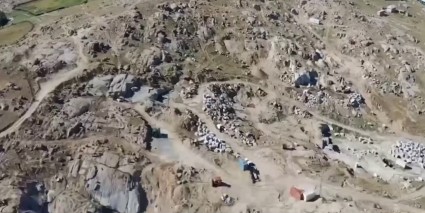Uzbekistan is a country highly impacted by climate change, biodiversity loss and land degradation. The government is taking efforts for rapid transition to a more green, inclusive and climate-friendly economy a central pillar of its latest development plan. Its newly adopted environmental policies include the Concept on Environmental Protection until 2030 and the Strategy for Transition to Green Economy for the period 2019–2030.
Energy sector is the dominant sector of the inventory of greenhouse gas (GHG) emissions in the country, accounting for 76.3% of the total GHG emissions. Uzbekistan made commitments under the NDC of the Paris Agreement to meet a 35% reduction of GHG relative to GDP by 2030.
As part of the session on “Climate change & the necessity of transitioning to a green economy” that was moderated by Laura Altinger, UNDP Nature, Climate and Energy Lead, participants discussed the importance of the transition to a green economy to mitigate and adapt to the effects of climate change in Uzbekistan; the need to implement a robust Green Growth Strategic Framework and Action plan, as well as sustainable approaches to managing challenges related to climate change in energy, water, and agriculture as well as strengthening disaster resilience. The session also touched upon climate change institutional assessment results for Uzbekistan how to introduce a sectoral environmental assessment (SEA) of government programs and large infrastructure projects needs to be introduced; what reforms have been developed to support the transition to a carbon-neutral economy.
Mr. Ilkhom Norkulov, First Deputy Minister of economic development and poverty reduction of the Republic of Uzbekistan, pointed out in his statement, “I am convinced, that the sooner we get the message, and the sooner we start getting prepared for implementing green economy approaches, the more competitive the economy becomes”. He also added a point on that the country is already exploring world’s best practices and researching ways to double down on energy efficient construction, which is another big area for improvement.
Participants also discussed how additional investments, support for private sector companies in the field of green economy, and training of the labour force in line with the needs of the green economy transition will help stimulate green job creation.












